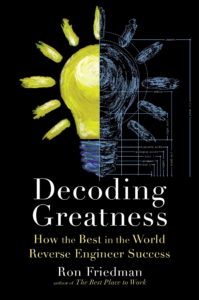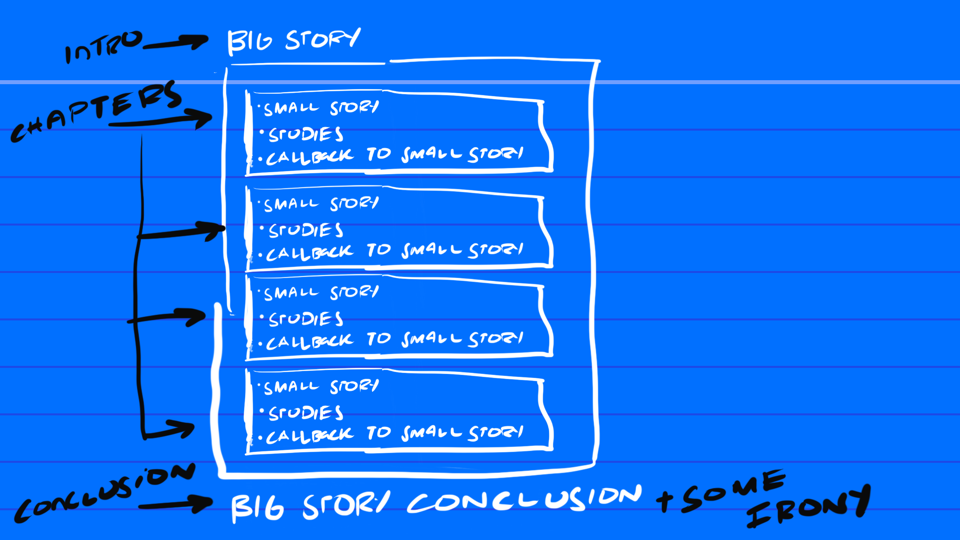
Check out the full notes for “Decoding Greatness: How the Best in the World Reverse Engineer Success” by Ron Friedman
Want a great tool to tunnel through writer’s block? Try some copy work.
Ron Friedman is the author of “Decoding Greatness” and he discusses the book on this episode of “The Writer Files”. Some of my takeaways:
Original work → Copy work → Original work
He references a study done in Tokyo where the participants created work for 3 days. One group did original work all three days. The others copied other people’s work (here’s the study) during day 2. What does copying do?
From “Decoding Greatness” by Ron Friedman
The process of copying—of carefully analyzing a particular work, deconstructing its key components, and rebuilding it anew—is a transformative mental exercise that does wonders for our thinking. Unlike the experience we get when we passively consume a work, copying demands that we pay meticulous attention, prompting us to reflect on both subtle details and unexpected techniques.
Copy work is often something you’ll see recommended for copywriters who are starting out. Grab some classic ads, then re-write them by hand. You’ll get a feel for good persuasive writing this way. It can feel like magical osmosis, but writing it longhand makes you slow down and actually consider writing sentence by sentence.
Switching back and forth helps to keep things moving so that you (1) keep from rabbit holing in a silo and (2) keep from copying too much to the point that you’re really just ripping something off without putting your own twist on thigns.
Story → Study (How to be Gladwellian)
A phrase that Friedman uses in the podcast episode is “Gladwellian”. If you’ve read a nonfiction book from the past decade, you’ve likely come across. If you’ve read a bunch of nonfiction books from the past decade, you already know what’s meant by this structure for writing.
One sec, I’ll sketch it out.
From “Decoding Greatness” by Ron Friedman
Certain patterns are obvious. There is the story-study-story-study structure that is now a fixture of popular nonfiction, the novelistic flair used to bring central characters to life, and the sticky simplicity with which complex ideas are communicated, transformed from lifeless data into irresistible dinner party ammunition.
It’s effective and it’ll be effective for as long as humans are interested in information and storytelling.
Obama the storyteller
On the podcast, Friedman also mentions that Obama needed to shed some of the lecturing style he picked up as a law professor before reaching greatest successes as a politician.
From “Decoding Greatness” by Ron Friedman:
By the time Obama declared his candidacy for the US Senate just a few years later, his speaking style was transformed. Instead of communicating in abstractions, he was now telling stories, quoting the Bible, and using repetition to drive home his points. But it was more than just his words; it was also the way he was delivering them. Obama had learned to speak loudly at some points and softly at others, to modulate his tone and subtly convey emotion, to emphasize important arguments with a calm, deliberate pause. By adapting techniques commonly used in churches and importing them into the political arena, Obama was able to evolve his speaking style and establish himself as a unique political force.
Learn, unlearn, re-learn.


